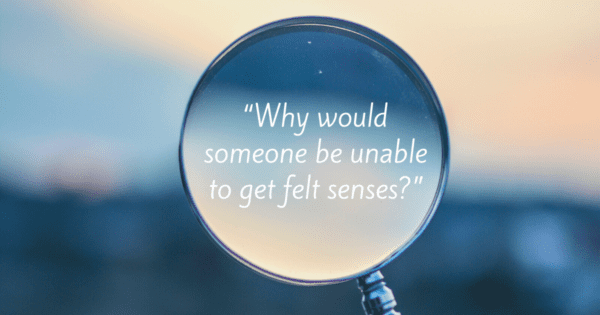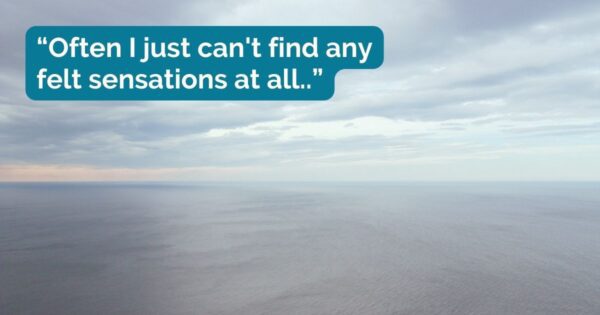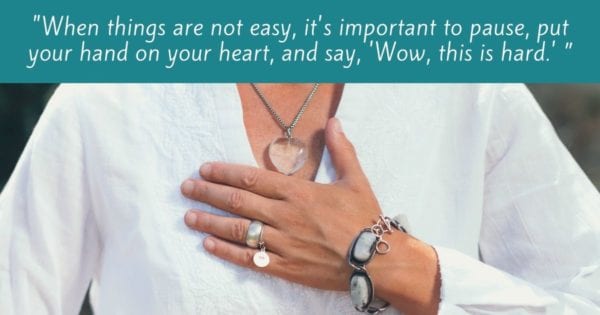“I can’t believe how long I was in denial!”
~~~~~~~~~~~~~~~~~~~~~~~~~~~~~
Being “in denial” is one way we talk about a persistent closing off of awareness… when there is something true that we refuse to acknowledge.
Sometimes what is not acknowledged is something that everyone can see. This is what is sometimes called “the elephant in the living room.” If no one talks about it, if we pretend it isn’t there–maybe we won’t ever have to deal with it.
When I was growing up, my dad’s drinking problem was an example of this. No one talked about it, nor about Dad’s mood swings from eager excitement to dark, self-critical depression.
Later, in my 40s, I had my own drinking problem. And I was doing Focusing every week with a partner… yet never addressing the drinking. You might say that Focusing didn’t help me with the “blind-spot” of my drinking problem. And you might be right.
When I finally did become aware that I had a drinking problem, and stopped drinking, I remember the shock of realizing I’d been in denial for years, even though I was a respected teacher of Focusing. I wondered how Focusing could have “failed” me… and what I could do about it, so it wouldn’t happen again. (To me and to other people.)
My creative partner Barbara McGavin and I poured our attention into going to the roots of Focusing so we could have a method that would work for areas of denial and blind-spots. What we created out of that work is still “Focusing”–yet enhanced by our new understanding about what is needed to get past denial.
We realized that, to be effective for areas of denial, Focusing has to be “pointed,” so to speak. Intention is key. That means starting with an issue, a life area that brings pain, confusion, uneasiness. (Not all Focusing sessions start with an issue, or something painful. But to make sure that you are catching your areas of denial, it’s important to start some of your sessions by inviting a life “tangle.”)
~~~~~~~~~~~~~~~~~~~~~~~~~~~~~~~~~~~~~~~~~~
We also realized that, for the difficult areas of life, it is absolutely necessary to be Self-in-Presence. That means not being identified with either side of an issue, but holding a large space for the whole thing, and all the aspects.
As soon as “I don’t want to know” becomes “Something in me doesn’t want to know,” a huge shift in perspective is possible.
So yes, Focusing DOES work with blind-spots, denial, and the areas that “something in you” doesn’t want to face or look at — as long as you include two essential moves in your Focusing. (I’m speaking now to the Focuser — to you when you are Focusing — not to your friends or Focusing partners, or therapists. You.)
(1) You need to be Self-in-Presence, not identified with fearing or pushing on your issues. (We’ve developed ways of cultivating Self-in-Presence…)
(2) You need to set an intention to spend Focusing time with the areas of your life that “something in you” thinks will never change.
There are other moves that are important, but these two are essential… and yes, change is possible, and so is moving beyond denial.







